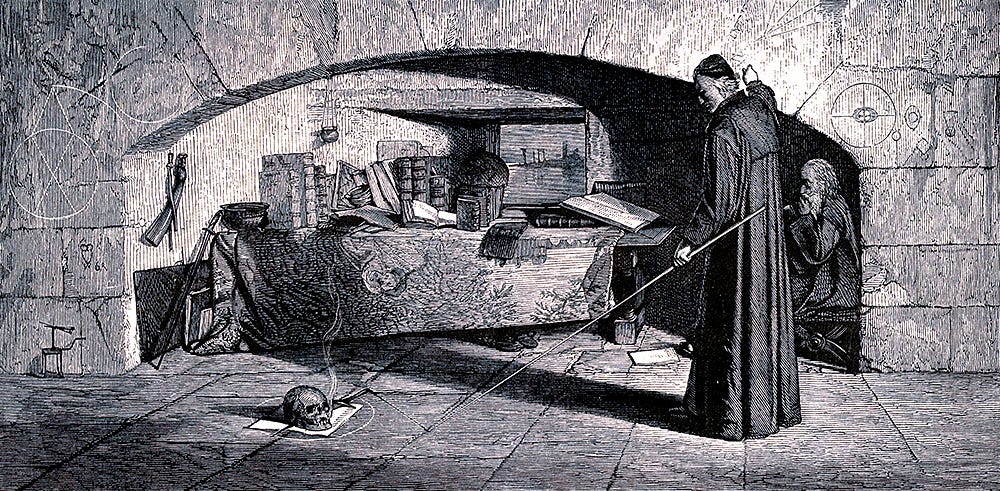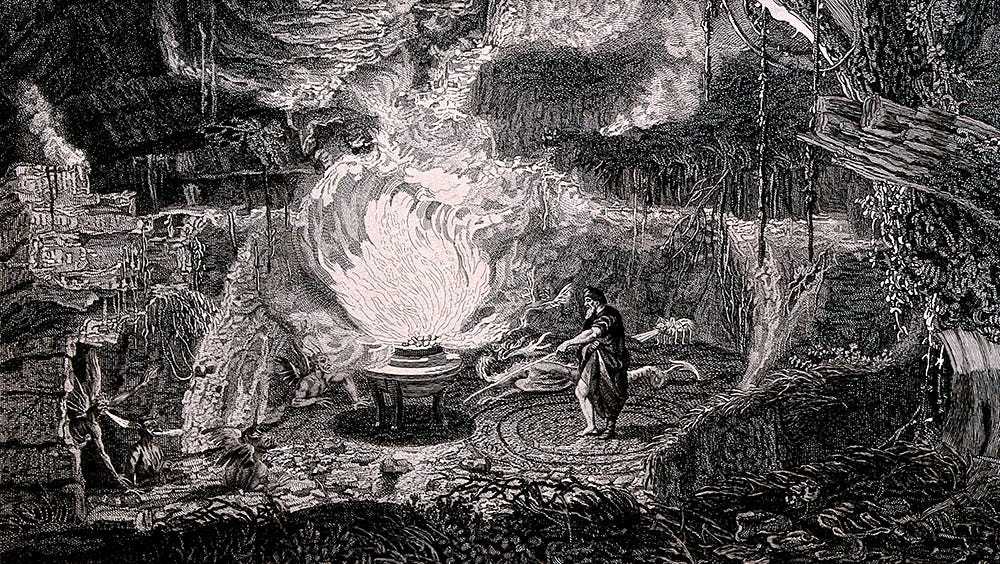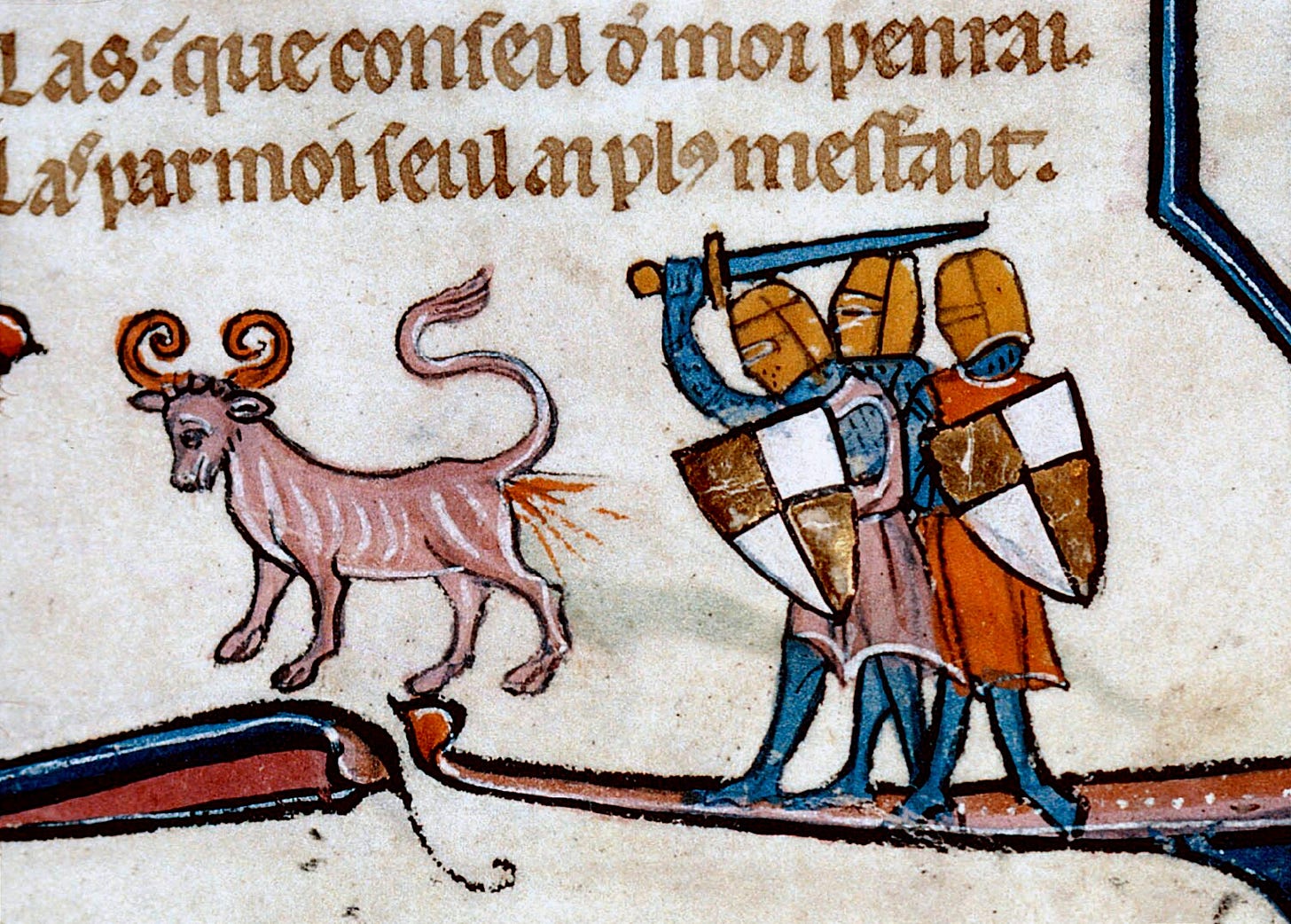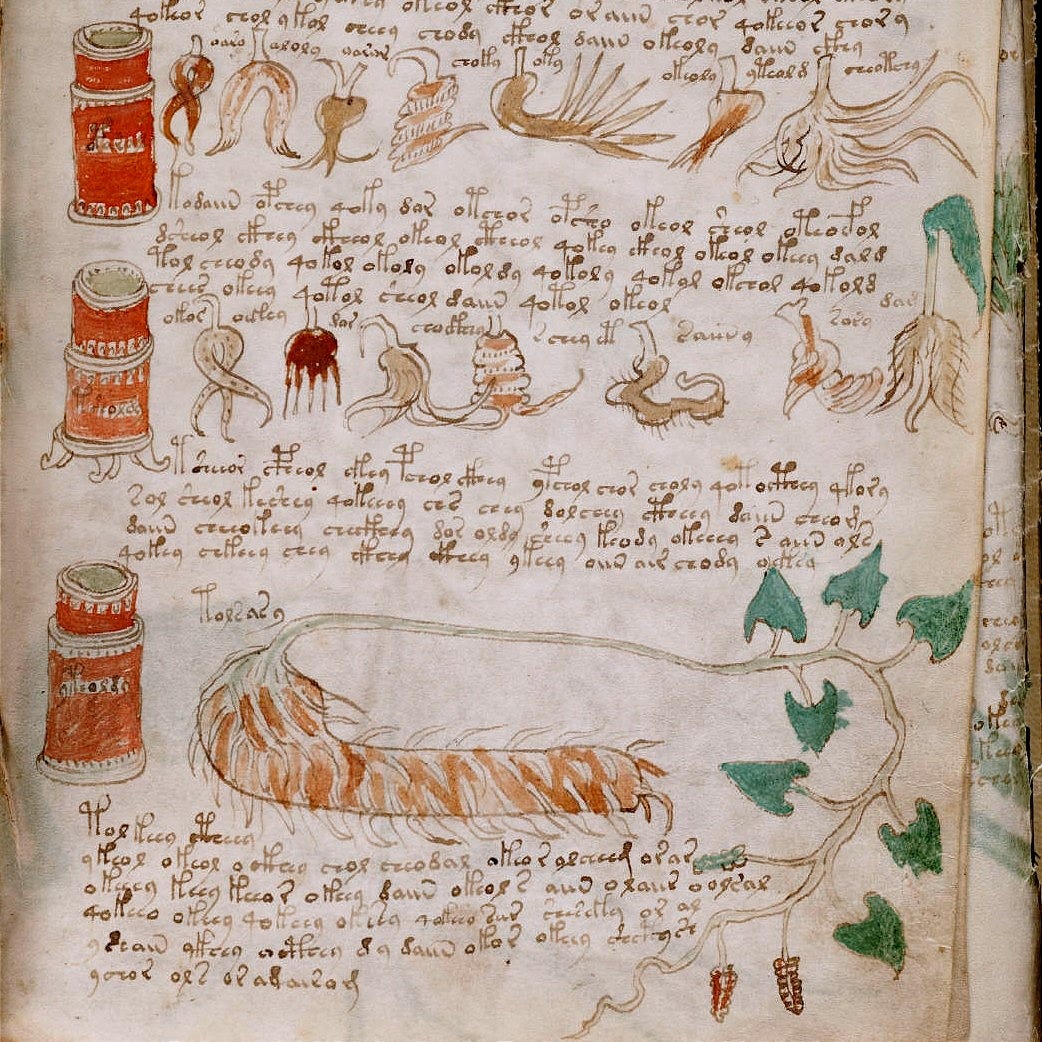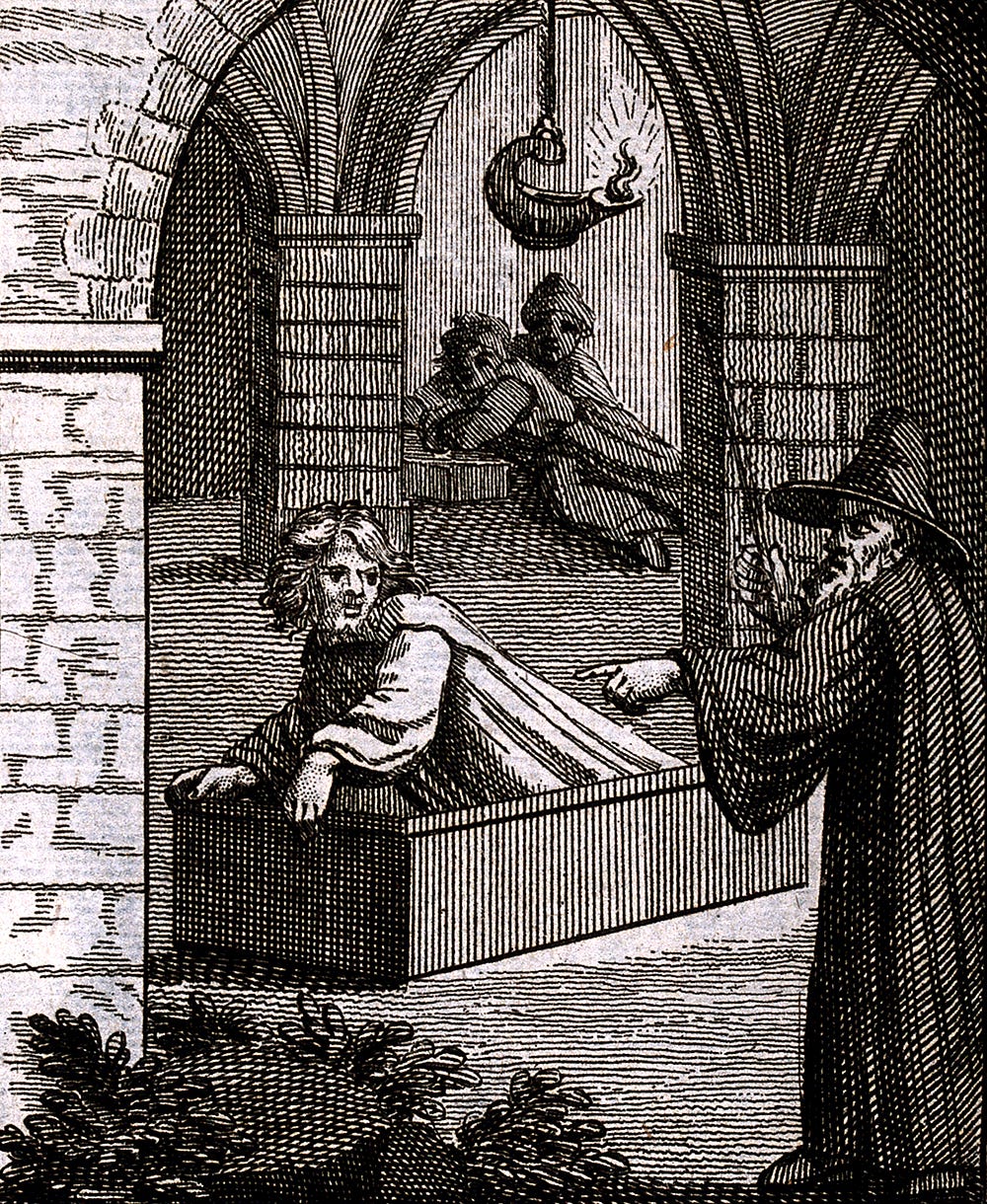A Wavy Line Between Wizard and Scientist
Plus, where to follow the laws, and where to break them, in writing. And a table! I almost forgot the table!
For anyone new to this Substack, welcome! It’s where I play around with action figures, especially G.I. Joe, as a touchpoint for both speculative fiction and TRPG game design.
Following our at Dr. Mindbender, today we dive further into his character tropes in fiction; specifically the “evil scientist” in fantasy.
Last time, I noted my genre preference for “science fantasy,” where science largely provides world building explanations for much of a setting’s fantastic elements (Star Wars as the largest example, Gene Wolfe’s Book of the New Sun as my personal favorite). There’s a bit of a play with Arthur C. Clarke’s Third Law1: "Any sufficiently advanced technology is indistinguishable from magic," perhaps leaning more toward the Penn & Teller style of showing how the magic trick works, and how the advanced technology actual creates the magical effects.
What does all this have to do with today’s topic?
Nothing! Nothing at all! (Or does it…)
Instead we’re turning more towards high fantasy and TRPGs, and having some fun with wizards, sorcerers, and magic-users of all kinds. With scientists, we started with no less than Dr. Frankenstein, so for the ür-wizard, who else should we look at than Merlin himself?
In Defense of Breaking Tropes
But first, an absolute tangent of an introduction to Merlin…
Here’s my confession (for the week; I won’t admit who broke that planter in the bathroom with a misplaced elbow just yet). As a developing writer, there are certain tropes, and models, and pieces of advice that I hold fairly sacrosanct for my own personal approach (no head-hopping POV, avoid Mary Sue characters).
Others, less so.
The Hero’s Journey
I love a good redemption story for the hero. I love satisfying comeuppance for the villain. I am, however, rather full and satisfied with the traditional hero’s journey arc. I get it. It’s a template that goes back to some of humanity’s earliest myths and still carries on into galaxies far, far away. I just don’t need every hero’s story to follow these beats as a proscribed pattern (the call to action, finding a mentor, crossing the first threshold, etc.).
Perhaps it works for stories that want to lean into a sense of the mythic, but I also appreciate those that play against expectation and break convention. The ending of Chinatown stays with us; there is an answer to the mystery, but no sense of justice. We follow Walter White through his complete descent into some kind of “moral villainy.” Not that either of those even attempt pretend to showcase anything other than anti-heroes, but it’s precisely their anti-heroic journey that keeps things more unexpected and therefore more compelling to me as an audience.
For the same reasons, I’d argue that Games of Thrones was more popular in the early seasons because of its “grim ambiguity” and much less so in the final episodes bringing things to a “satisfying” conclusion.
Few were satisfied.
The Long, Descriptive List
Likewise, when it comes to setting the scene, there’s often the advice to avoid long lists in descriptions. You don’t need to include every object in the room, just boil it down to the most essential or the ones that can evoke an overall sense of the room.
Thaaaat said… there are long, descriptive lists in fiction that I cannot help but lovingly pour through, regardless of their drag on any narrative propulsion. For example—and here’s where we finally get back to Merlin!—one of my favorites has King Arthur (in his youthful, pre-sword pulling days; here, touchingly nicknamed “The Wart”) first visiting Merlin’s home:
It was the most marvellous room that he had ever been in.
There was a real corkindrill hanging from the rafters, very life-like and horrible with glass eyes and scaly tail stretched out behind it. When its master came into the room it winked one eye in salutation, although it was stuffed. There were thousands of brown books in leather bindings, some chained to the book-shelves and others propped against each other as if they had had too much to drink and did not really trust themselves. These gave out a smell of must and solid brownness which was most secure. Then there were stuffed birds, popinjays, and maggot-pies and kingfishers, and peacocks with all their feathers but two, and tiny birds like beetles, and a reputed phoenix which smelt of incense and cinnamon. It could not have been a real phoenix, because there is only one of these at a time. Over by the mantelpiece there was a fox's mask, with GRAFTON, BUCKINGHAM TO DAVENTRY, 2 HRS 20 MINS written under it, and also a forty-pound salmon with AWE, 43 MIN., BULLDOG written under it, and a very life-like basilisk with CROWHURST OTTER HOUNDS in Roman print. There were several boars' tusks and the claws of tigers and libbards mounted in symmetrical patterns, and a big head of Ovis Poli, six live grass snakes in a kind of aquarium, some nests of the solitary wasp nicely set up in a glass cylinder, an ordinary beehive whose inhabitants went in and out of the window unmolested, two young hedgehogs in cotton wool, a pair of badgers which immediately began to cry Yik-Yik-Yik-Yik in loud voices as soon as the magician appeared, twenty boxes which contained stick caterpillars and sixths of the puss-moth, and even an oleander that was worth sixpence—all feeding on the appropriate leaves…
Phew! Stopping to catch my breath here. Believe it or not, the description continues uninterrupted:
… a guncase with all sorts of weapons which would not be invented for half a thousand years, a rod-box ditto, a chest of drawers full of salmon flies which had been tied by Merlyn himself, another chest whose drawers were labelled Mandragora, Mandrake, Old Man's Beard, etc., a bunch of turkey feathers and goose-quills for making pens, an astrolabe, twelve pairs of boots, a dozen purse-nets, three dozen rabbit wires, twelve corkscrews, some ants' nests between two glass plates, ink-bottles of every possible colour from red to violet, darning-needles, a gold medal for being the best scholar at Winchester…
What is this stuff? Guns in a medieval fantasy? Some joke about a scholastic award he’s received? Yes and yes, and I love it all!
… four or five recorders, a nest of field mice all alive-o, two skulls, plenty of cut glass, Venetian glass, Bristol glass and a bottle of Mastic varnish, some satsuma china and some cloisonné, the fourteenth edition of the Encyclopaedia Britannica (marred as it was by the sensationalism of the popular plates), two paint-boxes (one oil, one water-colour), three globes of the known geographical world, a few fossils, the stuffed head of a cameleopard, six pismires, some glass retorts with cauldrons, bunsen burners, etc., and a complete set of cigarette cards depicting wild fowl by Peter Scott.
—The Once and Future King
Granted, that is an absolute block of text. And while it does absolutely nothing to move the story forward or advance the plot, it does a wonderfully poetic job of telling us how strange, how wonderful—and importantly—how utterly out of time Merlin truly is (more on that later).
When done well, I luxuriate in these lists. Umberto Eco’s The Name of the Rose describes a door carven with an entire bestiary of animals and strange figures, real or imagined, including “…hydrphora with sawtooth horns, frogs, gryphons, monkeys, dog-heads, leucrota, manticores, vulture, paranders, weasels, dragons, hoopoes, owls, basilisks, hypnales, presters, spectafici, scorpions…”
I could go on, and on, and Eco certainly does. It reminds me of another favorite list, The Denham Tracts. If you’ve ever googled the etymology of the word “hobbit,” you’ve probably come across this one as well; and someday, I’ve love to examine each creature in turn.
In Bolted to the Bone2, I’ve included my own version of Merlin’s home, written as a similar long lost of “stuff”:
Far more of a reaction came from Mister Gold. The tiny luchorman began rustling inside Scrounger’s pocket as it sensed the apartment’s wealth, both hidden and on display—near the cluster of amethyst crystals and opalized fossils, but also the models of magnetic locks dismantled like small robotic corpses under autopsy, the precious metals of their wiring shining coppery red and silvery white in the firelight. There were so many other odd wonderments as well, vials of liquor with the claws and teeth of oll-beasts fermenting inside; and an elaborate orrery, a model of Shattered Earth, with all its many remanants depicted in their place around its fractured core; and a hundred other objects in this front parlor alone, some even from Rhiannon, such as a set of justice knives that could only be wielded by their winning plaintiff against the losing defendant; and some from Antefracturam Earth, surviving artifacts of ancient wealth or technology of the sort to cause relinquarians to travel the remanants hunting after them.
Now Back to Our Spellcasting Already in Progress
Now then! Returning to the “evil scientist,” or eccentric genius, as a character trope. To me, the trope has connotations of a scientist looking to practice and extend their knowledge, often with a specific project or goal in mind. The formerly “mad” label, more often adjusted now as “eccentric,” refers to their unorthodox or dangerous approach, their equally dangerous or destructive goal, and their general lack of regard for anything opposing their progress.
Carried over into fantasy, it’s likewise not enough for a wizard to merely possess magical knowledge, but also how are they applying it. Do they have a specific project, purpose, or goal they are using their magic to achieve?
Merlin, as such, is not so much an “evil scientist” or eccentric genius figure, so much as he is a prophet (owing to his backward passage in time), teacher, and “wizard on call.”3
The Curse of Magic
For just a moment more, I wanted to explore that element, his backward passage in time.
"Now breakfast," said Merlyn.
The Wart saw that the most perfect breakfast was laid out neatly for two, on a table before the window. There were peaches. There were also melons, strawberries and cream, rusks, brown trout piping hot, grilled perch which were much nicer, chicken devilled enough to burn one's mouth out, kidneys and mushrooms on toast, fricassee, curry, and a choice of boiling coffee or best chocolate made with cream in large cups.
Yes, another fairly long descriptive list. There’s something about fantasy and lists of food oftentimes, isn’t there… Also, who’s choosing the chocolate over coffee, even if it is “best”?
Soon after, we come to Merlin’s explanation of he he experiences time:
"How did you know to set breakfast for two?"
"Ah, yes. How did I know to set breakfast for two? That was why I showed you the looking-glass. Now ordinary people are born forwards in Time, if you understand what I mean, and nearly everything in the world goes forward too. This makes it quite easy for the ordinary people to live, just as it would be easy to join those five dots into a W if you were allowed to look at them forwards, instead of backwards and inside out. But I unfortunately was born at the wrong end of time, and I have to live backwards from in front, while surrounded by a lot of people living forwards from behind. Some people call it having second sight."
He stopped talking and looked at the Wart in an anxious way.
"Have I told you this before?"
"No, we only met about half an hour ago."
"So little time to pass?" said Merlyn, and a big tear ran down to the end of his nose. He wiped it off with his pyjamas and added anxiously, "Am I going to tell it you again?"
"I do not know," said the Wart, "unless you have not finished telling me yet."
It reads a bit Alice in Wonderland. A sophisticated concept baked inside a somewhat nonsensical delivery.
And yet, I read it as so incredibly tragic. This is Arthur’s first time meeting Merlin. But for Merlin, this will be the last time they have together.
So here’s where I turn back to science fantasy.
Magic in fantasy can accomplish physics-defying marvels—much of why I’m not a fan. This may sound ridiculous, for me to have scientific complaints about pure fantasy concepts, but there it is. Never mind Clarke’s Laws, I hate how magic breaks the Laws of Thermodynamics. Especially the first—energy can be neither created nor destroyed.
And yet a lot of high fantasy magic does exactly that—with a word or a gesture, the wizard conjures some force (e.g., a fireball), object or creature out of thin air.
So, I appreciate when there is a high cost shown for magic. It might not be a scientific explanation for how the matter or energy is seemingly newly created, but a cost nonetheless. Raistlin, in the Dragonlance series, has been physically weakened. Elric’s magic sword Stormbringer must be fed with intelligent souls. And Merlin is doomed to an odd backwards life through time.
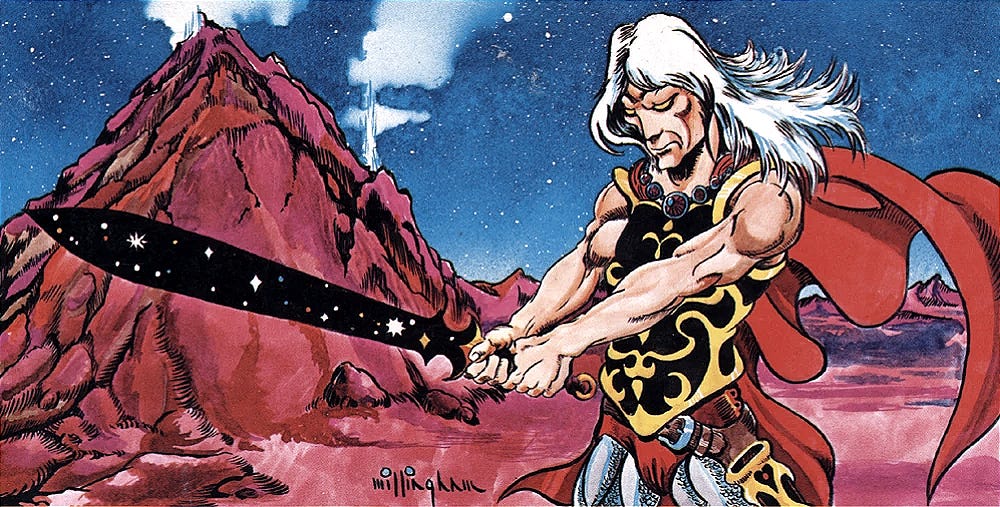
A Table of Scientists
OK. We should include something of TRPGs this time. So, whether scientist or wizard, here’s a little random table for your game. What are your geniuses working to create, their specific motive for doing so, and the source of their knowledge and/or resources?
Let’s find out…
For funsies, I’ve generated a scientist/wizard at random from our table:
1. The Scientist
What: Genetics (5)
Why: Revenge (1)
How: Ancient Knowledge (8)
Hmm, all right. So this NPC is an eccentric geneticist. I’m going to go with their work crossbreeding plants; in part because they derive their knowledge from some ancient knowledge. And for that, I’ll use the Voynich Manuscript, a mysterious tome with odd figures of plants and naked humans bathing in green pools.
This scientist is out for revenge. I’ll go with land dispute; they’ve had industrial polluters ruin their groundwater and crops through improper waste disposal (a bit cliche, I know). Through their research unlocking the Voynich Manuscript, they’re developing more waste pollution-resistant crops by crossbreeding various species, as well as incorporating these raw chemical as well in an attempt to “inoculate” them. That’s the goal anyway.
The actual results? These plants could go into the food supply, and now we have a plant-based version of a zombie outbreak… eh, too close to The Last of Us and its fungus-based zombie outbreak.
Fine, let’s have some good ole’ Swamp Thing sentient plants that arise! Our heroes need to confront them, but then decide of the plants need to be destroyed for the sake of nearby housing settlements, or if they’ll join their cause against the polluters.
2. The Wizard
What: Transportation (10)
Why: Predecessor (11)
How: Accidental (9)
OK, now this gives us a pretty quick story to tell! Our wizard has been carrying on the work of their predecessor, who was looking to develop more advanced teleportation circles… until they mysteriously disappeared.
You can already see where this is going.
Through some accidental discover (a lost page in a spellbook found out of place; being used as a bookmark in the older wizard’s nighttime reading), the teleportation circle can be completed, and the older wizard sought out and potentially rescued on the other side. But where is the other side? And how does one return?
Will out heroes accept this quest, and potentially be rewarded with a powerful magical ally?
Next time: Pursuing science in D&D/TRPGs.
His first two (much less referenced) laws being:
When a distinguished but elderly scientist states that something is possible, he is almost certainly right. When he states that something is impossible, he is very probably wrong.
The only way of discovering the limits of the possible is to venture a little way past them into the impossible.
Yep, I sure have been promoting my book extensively this past several weeks, but there’s just a few weeks left until it releases, and I want to take advantage of that time while I can!
So why even write about then? It’s wizards, I’m compelled to mention Merlin!


